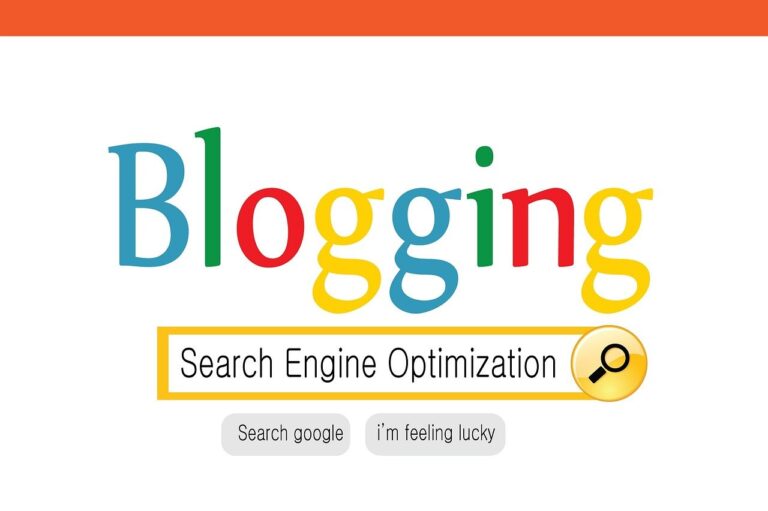Embarking on a journey of further education can be transformative for holistic practitioners. Many professionals in this field have discovered that expanding their knowledge and skills opens doors to new opportunities and enhances their ability to serve clients effectively.

Continuing education empowers holistic practitioners to deepen their expertise, broaden their service offerings, and ultimately achieve greater career success.
From health coaches to integrative health practitioners, individuals across various specialties have experienced significant professional growth through ongoing learning.
These success stories showcase the tangible benefits of investing in education. You’ll discover how practitioners have overcome challenges, expanded their practices, and found renewed passion for their work. Their experiences offer valuable insights and inspiration for anyone considering taking the next step in their holistic health career.
Key Takeaways
- Further education enhances expertise and expands career opportunities for holistic practitioners
- Success stories demonstrate the tangible benefits of ongoing learning in the field
- Continuing education can lead to personal growth, improved client outcomes, and increased professional satisfaction
The Importance of Further Education in Holistic Health

Continuing your education in holistic health can significantly enhance your career prospects and expertise. It allows you to stay current with the latest practices and expand your skillset to better serve clients.
Benefits of Continued Learning in Holistic Practices
Pursuing further education in holistic health keeps you at the forefront of the field. You’ll gain deeper insights into various healing modalities and expand your treatment options.
Advanced training can lead to improved patient outcomes and higher client satisfaction. This, in turn, can boost your reputation and attract more clients to your practice.
Continuing education also helps you:
- Develop specialized skills
- Network with other professionals
- Gain confidence in your abilities
- Adapt to changing healthcare trends
By investing in your education, you demonstrate commitment to your craft and professionalism. This can set you apart in a competitive market and potentially increase your earning potential.
Overview of Educational Paths Available
You have numerous options for furthering your holistic health education. These range from short workshops to full degree programs.
Certificate programs offer focused training in specific modalities. They typically take a few months to complete and can be done alongside your current practice.
Diploma courses provide more comprehensive education. They often cover multiple aspects of holistic health and may take 1-2 years to finish.
For those seeking advanced qualifications, degree programs in holistic health are available at some universities. These include bachelor’s, master’s, and even doctoral levels.
Online courses offer flexibility, allowing you to study at your own pace. In-person programs provide hands-on experience and direct interaction with instructors.
Professional associations often offer continuing education credits. These can help you maintain certifications and stay updated on industry standards.
Real-Life Success Stories
Education has been a transformative force for many holistic practitioners, propelling their careers to new heights. These stories showcase the power of continuous learning and professional development in the field of holistic health.
From Massage Therapist to Integrative Health Specialist
Sarah began her career as a massage therapist with a small client base. Recognizing the need to expand her skills, she pursued further education in holistic health.
Sarah completed courses in nutrition, aromatherapy, and energy healing. This diverse knowledge allowed her to offer a more comprehensive approach to wellness.
Her expanded skill set attracted a wider range of clients. Sarah’s practice grew exponentially, and she now runs a successful integrative health center. Her journey demonstrates how education can broaden your professional horizons and increase your impact in the holistic health field.
Overcoming Challenges: Balancing Work, Life, and Education
John, a practicing herbalist, faced the common struggle of juggling work, family, and education. Determined to advance his career, he enrolled in an online advanced herbalism program.
John created a strict schedule, dedicating early mornings and weekends to his studies. He also communicated openly with his family about his goals, ensuring their support and understanding.
Despite the challenges, John’s perseverance paid off. His new knowledge allowed him to develop unique herbal formulations, attracting more clients. John’s story illustrates that with determination and effective time management, you can overcome obstacles and achieve your educational goals.
The Impact of Advanced Certifications in Holistic Nutrition
Emma, a holistic nutritionist, saw her career take off after obtaining advanced certifications. She invested in specialized courses focusing on gut health and autoimmune disorders.
These certifications allowed Emma to offer targeted nutritional plans for clients with complex health issues. Her expertise in these niche areas set her apart from other nutritionists in her community.
Emma’s client base grew rapidly, and she began receiving referrals from local doctors. Her advanced knowledge not only increased her income but also enhanced her professional credibility. Emma’s experience shows how specialized education can accelerate your career growth and establish you as an expert in your field.
Educational Paths and Their Benefits
Choosing the right educational path can significantly impact your career as a holistic practitioner. The following options offer unique advantages and challenges to consider when planning your professional journey.
Holistic Health Degrees and Certifications
Pursuing a degree or certification in holistic health provides a solid foundation for your career. Many universities now offer bachelor’s and master’s programs in integrative health, naturopathy, or holistic nutrition.
These programs typically cover a wide range of topics, including anatomy, physiology, and natural healing modalities. You’ll gain a comprehensive understanding of both traditional and alternative approaches to health.
Certifications can be more specialized and shorter in duration. They often focus on specific practices like aromatherapy, reflexology, or energy healing. These can be excellent options if you’re looking to add new skills to your existing practice.
Online vs. In-Person Learning: Pros and Cons
Online learning offers flexibility and convenience. You can study at your own pace and balance education with other commitments. Many reputable institutions now offer high-quality online programs in holistic health.
Virtual classrooms often provide access to a diverse student body and instructors from around the world. This can enrich your learning experience with varied perspectives.
In-person learning, on the other hand, provides hands-on experience and direct interaction with instructors and peers. This can be particularly beneficial for practices that require physical techniques.
Traditional classroom settings also offer structured learning environments and networking opportunities. You’ll have the chance to build relationships with fellow students and potential mentors.
Specialized Training Programs: Acupuncture, Herbal Medicine, and More
Specialized programs delve deep into specific holistic practices. Acupuncture training, for example, typically requires 3-4 years of study and includes clinical practice.
Herbal medicine programs can range from short courses to multi-year degrees. You’ll learn about plant properties, preparation methods, and safe usage guidelines.
Other specialized areas include:
- Ayurvedic medicine
- Traditional Chinese Medicine
- Massage therapy
- Homeopathy
These programs often combine theoretical knowledge with practical skills. You’ll gain expertise in your chosen field and potentially earn recognized credentials.
Many specialized programs also include business and ethics courses. This prepares you for the practical aspects of running a holistic health practice.
Challenges Faced by Holistic Practitioners
Holistic practitioners encounter several obstacles in their careers. These challenges impact their financial stability, work-life balance, and ability to navigate regulatory requirements.
Financial Considerations and Funding Options
Pursuing further education as a holistic practitioner often comes with significant costs. You may face tuition fees, study materials expenses, and potential income loss while studying. To overcome these financial hurdles, consider exploring various funding options:
- Scholarships and grants specifically for holistic health professionals
- Low-interest student loans tailored for continuing education
- Employer-sponsored tuition assistance programs
- Crowdfunding campaigns to support your educational goals
It’s crucial to create a detailed budget that accounts for both educational expenses and ongoing living costs. Look into part-time work opportunities in your field to maintain income while studying.
Time Management: Juggling Education, Work, and Personal Life
Balancing your studies with existing work commitments and personal responsibilities can be demanding. Effective time management is key to your success:
- Create a realistic study schedule that aligns with your work hours
- Use productivity tools to track tasks and deadlines
- Prioritize self-care to maintain physical and mental well-being
Consider discussing flexible work arrangements with your employer. Online or part-time study options may offer greater flexibility. Remember to communicate openly with family and friends about your commitments and seek their support.
Navigating the Evolving Landscape of Holistic Health Regulations
The regulatory environment for holistic health practices is often complex and subject to change. You must stay informed about:
- Licensing requirements in your state or country
- Scope of practice limitations for your specific modality
- Insurance and liability considerations
Join professional associations in your field to access up-to-date information on regulations. Regularly review and update your knowledge of ethical guidelines and best practices. Consider consulting with a legal professional specializing in holistic health to ensure compliance.
Networking with experienced practitioners can provide valuable insights into navigating regulatory challenges. Stay proactive in your approach to compliance to protect your practice and clients.
Tangible Benefits Experienced

Further education in holistic practices yields significant advantages for practitioners. These benefits manifest in various aspects of their professional lives, from client relationships to personal growth.
Increased Client Trust and Business Growth
As a holistic practitioner with advanced education, you’ll likely experience a boost in client confidence. Your enhanced knowledge and credentials often lead to improved client trust. This trust translates into tangible business growth.
Clients are more inclined to recommend your services to others, expanding your network organically. You may find your appointment book filling up faster and more consistently.
Many practitioners report a significant increase in repeat clients after furthering their education. This loyalty can provide a stable income stream and allow you to focus on delivering quality care rather than constant marketing.
Enhanced Skill Set and Expanded Service Offerings
Further education equips you with new techniques and methodologies. This expanded skill set allows you to offer a wider range of services to your clients.
You might learn advanced massage techniques, nutrition counseling, or energy healing methods. These additional skills can set you apart from competitors and attract a broader client base.
With a more diverse service menu, you can cater to various client needs. This versatility often results in increased revenue per client and opens doors to new market segments.
Your enhanced abilities may also lead to collaborations with other health professionals, creating a more holistic approach to client care.
Personal and Professional Fulfillment
Advancing your education often leads to a deeper sense of personal satisfaction. You’ll likely feel more confident in your abilities and decision-making processes.
This increased confidence can positively impact your interactions with clients, leading to more effective treatments and better outcomes. Many practitioners report feeling more fulfilled in their work after furthering their education.
Professional recognition may also follow. You might find opportunities to speak at conferences, write articles, or even teach others in your field.
The process of learning itself can be invigorating, reigniting your passion for holistic practices. This renewed enthusiasm often translates into improved client experiences and outcomes.
Inspiration and Practical Insights

Transforming your holistic practice through further education requires careful planning and strategic decision-making. Learn from those who have successfully navigated this path and discover valuable resources to support your journey.
Tips for Choosing the Right Educational Path
Consider your long-term career goals when selecting educational programs.
Evaluate accredited institutions that offer specialized courses in your area of interest. Look for programs that balance theoretical knowledge with practical skills.
Research the curriculum thoroughly and ensure it aligns with your professional aspirations.
Seek out flexible learning options, such as online or part-time courses, to accommodate your current practice.
Connect with alumni or current students to gain insights into the program’s quality and relevance.
Pay attention to the faculty’s expertise and industry connections, as these can provide valuable networking opportunities.
Success Strategies from Experienced Practitioners
Experienced holistic practitioners emphasize the importance of continuous learning.
Stay updated with the latest research and techniques in your field through regular workshops and seminars.
Develop a strong professional network by attending industry conferences and joining relevant associations. These connections can lead to collaborations and new opportunities.
Implement new knowledge immediately in your practice to reinforce learning and demonstrate value to clients.
Consider specializing in a niche area to differentiate yourself in the market.
Maintain a growth mindset and be open to exploring complementary modalities that can enhance your practice.
Regularly seek feedback from clients and peers to identify areas for improvement.
Resources for Further Education and Career Advancement
Explore online learning platforms that offer courses in holistic health and wellness.
Many provide flexible, self-paced options suitable for busy practitioners.
Professional associations often offer continuing education programs and certifications. These can enhance your credibility and expand your skill set.
Utilize industry publications and journals to stay informed about emerging trends and research.
Subscribe to relevant newsletters and podcasts for ongoing inspiration and knowledge.
Consider mentorship programs or coaching services to gain personalized guidance for your career development.
Many experienced practitioners are willing to share their insights and support newcomers in the field.
Take advantage of local workshops and retreats to deepen your practice and connect with like-minded professionals.
These immersive experiences can provide valuable hands-on learning opportunities.
Conclusion

Further education has proven to be a game-changer for many holistic practitioners. By expanding their knowledge and skills, these professionals have unlocked new opportunities and elevated their careers.
Continuous learning allows you to stay current with the latest research and techniques in holistic health. This expertise enhances your credibility and attracts more clients seeking comprehensive care.
Specialization through additional training can set you apart in a competitive field. Whether it’s integrative health clinics or private practices, specialized knowledge opens doors to diverse career paths.
Networking opportunities often arise through educational programs. These connections can lead to collaborations, referrals, and mentorship opportunities that further propel your career.
Embrace lifelong learning to:
- Adapt to evolving client needs
- Incorporate new healing modalities
- Enhance your problem-solving abilities
By investing in your education, you invest in your future. The success stories shared here demonstrate the transformative power of continuous learning in the holistic health field.
Your commitment to growth not only benefits your career but also improves the lives of those you serve. Keep pushing boundaries and exploring new horizons in holistic health.
Frequently Asked Questions

Further education plays a crucial role in shaping the careers of holistic practitioners. It enhances their skills, broadens their knowledge base, and opens up new opportunities for professional growth.
How does further education impact the career trajectory of holistic practitioners?
Continuing education can significantly elevate a holistic practitioner’s career. It allows you to stay current with the latest research and techniques in your field. This knowledge can lead to improved patient outcomes and increased credibility among peers.
Advanced education often results in higher earning potential and expanded career options. You may find yourself qualified for leadership roles or specialized positions that were previously out of reach.
What are the key benefits of integrating holistic education into one’s professional development?
Holistic education provides a well-rounded approach to professional growth.
It encourages you to consider the interconnectedness of various health aspects, leading to more comprehensive care for your clients.
This type of education often emphasizes personal development alongside professional skills, fostering greater self-awareness and emotional intelligence. These qualities can enhance your ability to connect with clients and provide empathetic care.
In what ways have holistic studies advanced the practice of seasoned practitioners?
Holistic studies have introduced new modalities and treatment approaches to experienced practitioners.
You might discover innovative techniques that complement your existing practice, allowing you to offer more diverse services.
These studies often emphasize the integration of various healing traditions, enabling you to create more personalized and effective treatment plans for your clients.
What evidence supports the value of further education for professionals in the field of holistic health?
Research has shown that practitioners with advanced education tend to have higher client satisfaction rates.
You may find that your ability to explain complex health concepts improves, leading to better client understanding and compliance.
Graduate success stories frequently highlight how additional education has led to career advancements and increased professional recognition.
How do holistic practitioners balance continued education with their existing practice?
Many educational programs now offer flexible learning options, including online courses and part-time study.
You can often tailor your education to fit around your work schedule.
Some practitioners choose to reduce their client load temporarily to focus on studies. Others integrate their learning directly into their practice, applying new concepts as they learn them.
What role does a holistic educational background play in the success of health and wellness professionals?
A holistic educational background equips you with a unique perspective on health and wellness. This comprehensive approach can set you apart in a competitive market.
Professionals with holistic training often excel in creating inclusive and supportive environments for their clients. Your ability to address multiple aspects of health can lead to more effective and lasting results for those you serve.






